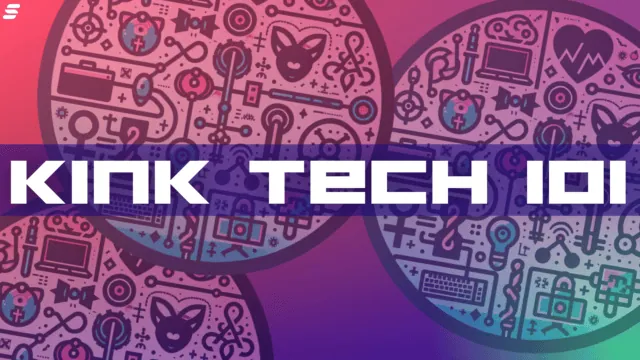Since Lily Allen’s sex toy collaboration with WowTech went viral in October, it appears that sexual wellness is getting a celeb-face lift.
In true pop-rebel style, Allen launched her own Womanizer suction toy called Liberty, and was announced as the company’s Chief Liberation Officer. Just one month later, Cara Delevingne was announced as a new co-owner and Creative Advisor of Lora DiCarlo.
To a cynical eye, these might immediately feel like tactical marketing efforts to drive traffic and sales, but there are arguably some social benefits. By bringing the conversation around sex into the mainstream, these celebrities are openly tackling of taboos around female pleasure, which is never a bad thing.
2020: Not That Great for Virtual Influencers Either
After a year of quarantining, it’s safe to say most people are craving authentic human connection more than ever, particularly when it comes to sex.
2019 was a hot year for virtual influencers, particularly in the adult space, including Jedy Vales, the face of YouPorn and xHamster’s Shy Yume. Perhaps it makes some sense that porn brands choose digital representatives, whereas sexual wellness brands see ‘real’ as a vital element of their marketing strategies.
This becomes apparent when CGI avatar Lil Miquela received much criticism for talking about her “sexual assault” (that was of course fictional). Her “sexually empowering” activity, which also included erotically kissing Bella Hadid in a Calvin Klein ad is arguably queer-baiting, and a commodification of people’s real-lived sexual experiences.
Which, in a post-MeToo society, just does not gel.
To generate a sex-positive attitude, there needs to be cultural sensitivity, and authentic vulnerability. Something technology can not evoke, certainly not alone.
Overcoming stigma & taboos
Before using sex toys, Lily Allen says she hadn’t experienced an orgasm.
Womanizer explains that Allen was an obvious choice to join forces with as she “came out as a Womanizer fan back in 2018” in her book My Thoughts Exactly, when reminiscing of her sexual discovery during her Sheezus tour in 2014.
With Womanizer, Allen was given the chance to co-design a special edition version of an existing suction toy with bright colors “that not only radiate good vibes, but also a lot of power.”

In her #iMasturbate campaign video interview, Allen talks frankly about sex and the need to challenge taboos around female pleasure, and that’s exactly the message the company wants to delivery with its products.
While choosing cis white women to be the palatable face of these companies’ target consumer market is not entirely radical (at least to the radical eye), according to the Womanizer’s survey, one in three women do not masturbate. That’s compared to just nine percent of men. There is a real need for closing the “pleasure gap“.
Public influence, a step in the right direction
After rocky start with CES revoking and then rescinding its award back in the depths of early 2019 (for “obscenity” of all things), Lora DiCarlo has launched many innovative sextech devices, including the Osé, Onda and Baci, and is pushing the conversation around sex forward.
Bringing Cara Delevingne on board as co-owner might seem like an odd direction, but in an interview with Rolling Stone, sexually fluid Delevingne makes a point that sextech has personally helped her get through this tumultuous year.
“This, I feel like, is a perfect way of women being able to just have that time to themselves, to enjoy themselves, and to not think about anyone else but themselves, because women don’t get that enough. Especially now.”

In a statement, the company told SEXTECHGUIDE that “Cara will add authenticity by sharing her own experience as a genuine Lora DiCarlo customer, and now a partner of the brand.”
Having public influence that people can relate to, and someone who talks openly about the benefits of self-pleasure, is one sure way to normalize the conversation around sex. Not only that, but Delevingne goes further to reflect on how this year has been a positive shift in societal changes:
“The one thing that has been really incredible about this quarantine is to see all these really important things that the world has needed to recognize and come face to face with, come to light. Whether it’s to do with systemic racism, or sexual wellness, female empowerment… I think it’s been really positive.”
But is it all (sex) positive?
During the SxTech EU virtual conference in late November, host Calandra Balfour highlighted that Womanizer gave a one-month exclusive to Lovehoney and withheld the Liberty device from being sold by anyone else. While it doesn’t take away from any normalization benefits and it’s perhaps not uncommon to have exclusivity deals, it’s not that great for smaller sex businesses that are locked out for 30 days.
Additionally, when it comes to “female sexuality”, we immediately recognize the various stigmas and taboos that need cutting through, but doesn’t there also need to be a conversation about male sex toy stigma? Arguably, you wouldn’t see an esteemed cis male celeb talking about the empowering impact of Fleshlights. And what about trans influencers being given a sex-positive platform (in the mainstream) to address their unique bias and erasure when it comes to sexuality?
While progress is being made, we’re clearly not ‘there’ yet.
Read Next: Queering industry: How LGBTQIA+ businesses are trans-forming tech









Leave a Reply